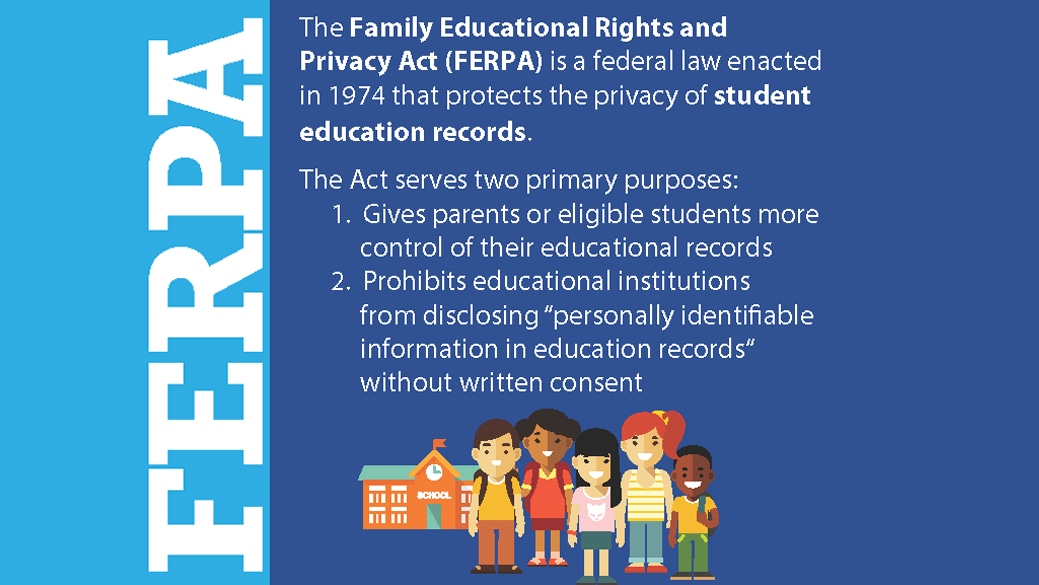What to know
The Family Educational Rights and Privacy Act (FERPA) is a federal law enacted in 1974 that protects the privacy of student education records. FERPA applies to any public or private elementary, secondary, or post-secondary school. It also applies to any state or local education agency that receives funds under an applicable program of the US Department of Education.

Parents’ or Eligible Students’ Rights
Parents or eligible students have the right to take the following actions:
- Inspect and review the student's education records maintained by the school. Schools do not have to provide copies of records unless it is impossible for parents or eligible students to review the original records (e.g., they live far away).
- Request that a school correct records they believe to be inaccurate or misleading. If the school decides not to change the record, the parent or eligible student then has the right to a formal hearing. After the hearing, if the school still decides not to change the record, the parent or eligible student has the right to place a statement with the record that explains his or her view about the contested information.
- Stop the release of personally identifiable information.
- Get a copy of the institution's policy concerning access to educational records.
Schools need written permission from the parent or eligible student to release any information from a student's education record. Schools that do not comply with FERPA risk losing federal funding. Because parochial and private schools at the elementary and secondary levels generally do not receive funding under any program administered by the US Department of Education, they are not subject to FERPA. Private postsecondary schools, however, generally do receive such funding and are subject to FERPA.
Permitted Disclosures
FERPA allows schools to disclose information from a student's education record, without consent, to the following parties or under the following conditions:
- School officials with legitimate educational interest
- Other schools to which a student is transferring
- Specified officials for audit or evaluation purposes
- Appropriate parties in connection with financial aid to a student
- Organizations conducting certain studies for, or on behalf of, the school
- Accrediting organizations
- Appropriate officials in cases of health and safety emergencies
- State and local authorities, within a juvenile justice system, pursuant to specific state law
- To comply with a judicial order or lawfully issued subpoena
For more information, visit the US Department of Education's FERPA website.
- Protecting Student Privacy: Frequently Asked Questions. US Department of Education.
